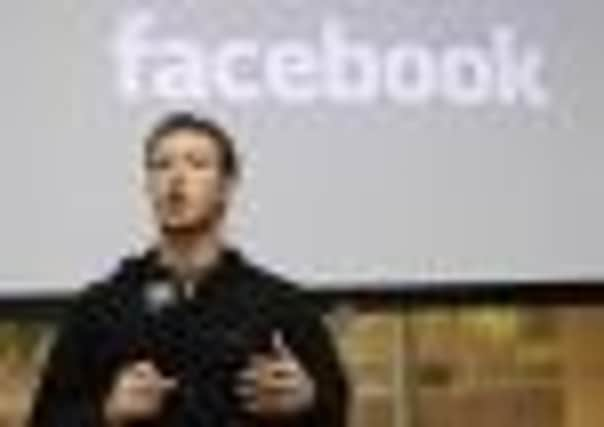Terry Murden: Mark Zuckerberg’s hand forced over $1bn Facebook deal


Its purchase of photo-sharing site Instagram at such a hefty price has again raised the spectre of a Nineties-style dotcom boom-to-bust. Worse than that, the deal has hardened opposition to Facebook among those who now see it as becoming another corporate monolith.
Analysts will be poring over the company’s logic in shelling out the equivalent of $37 per user in order to acquire Instagram, a company barely two years old and with just a dozen staff.
Advertisement
Hide AdAdvertisement
Hide AdIn its favour is an assumption that the over-exuberant misjudgments of the past have provided a cautionary tale, and that the companies leading the technology sector today are serious players with fast earnings growth built on more than fresh air.
Facebook may be acquiring a company at the nursery stage of its development, but it is already showing signs of maturity. It has been acquiring registered users at a rate of more than a million a month and those 27 million so far hooked on its somewhat geeky but addictive photo manipulation technology represent both an opportunity and a threat to more advanced sites.
Next month, Facebook is expected to launch its $100bn initial public offering on Nasdaq, but in spite of its global appeal analysts believe it still needs to bulk up in key segments of the market, particularly in mobile devices in which Instagram is a stronger player. No wonder Instagram, whose technology was seen by some as more user-friendly, was taking traffic away from Facebook.
Whether or not Facebook founder Mark Zuckerberg overpaid may not be known for some time, perhaps not until Instagram proves its ability to become a major revenue earner. Thus far, there is little evidence to say it will, though 27 million users cannot be ignored for long.
Zuckerberg probably gambled that Instagram’s time as a revenue stream was imminent and as such it posed another challenge to Facebook’s pole position and to the success of its IPO.
The synergies in product offering must also be positive. Google bought YouTube for $1.65bn in a deal considered high at the time, but now regarded as a successful tie-up of search engine and online video service.
Zuckerberg says he doesn’t plan on doing any more deals of this sort, though in the fast-moving world of social networking there are dangers on every corner. It’s thought he had to do this deal before one of his rivals, Twitter perhaps, leapt in ahead of him.
Delisting should not hinder Lees’ growth
THE directors of Lees have opted to take the company private in what is a curiously timed move, given that there is such an outcry across the industrial spectrum over the flow of finance available from the banks.
Advertisement
Hide AdAdvertisement
Hide AdIn a climate of weak lending from traditional lenders, more companies were expected to seek a stock market listing as a means of raising capital.
Lees’ board is saying little about the reason for the delisting, but it must be confident that future funding needs will be covered by its banks or other sources, such as cashflow.
Lees has low borrowing and its profits have been climbing strongly, helped by orders for own-label products and in spite of rising commodity prices.
The company believes that it has no further need of a public market and will be better positioned to operate in the private arena.
Leaving the market does remove some of the transparency in its dealings and risks lowering its profile, though Lees as an established brand should not see either as any sort of hindrance to its continued growth.
Airline needs a boost to lift grounded shares
IT HAS been a tough year for Flybe, the airline operating regional services. The stock is unchanged for the year to date and there is no dividend. There will be a small loss for last year and probably a bigger one in the current year.
The firm is in need of margin growth and some cost savings if its shares are to take off any time soon.